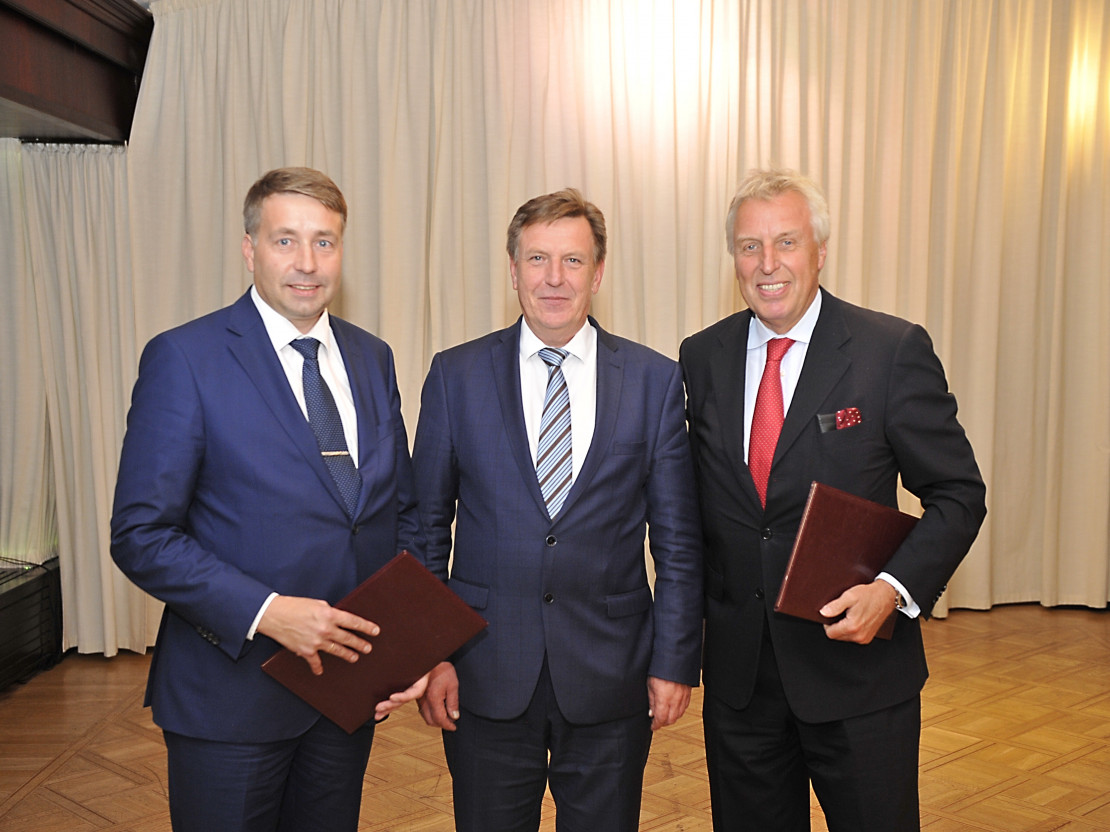
In the beginning of September in Riga, the Minister of Transport of the Republic of Latvia, Uldis Augulis and the Chief Executive Officer of Duisport, Erich Staake, in the presence of the Prime Minister of Latvia Māris Kučinskis, signed a Memorandum of Understanding foreseeing a closer cooperation on attracting international cargoes from China to Scandinavia, through the Latvian ports.
A significant role in the implementation of the Memorandum is assigned to the subsidiary company of “Latvijas dzelzceļš” Group (Latvian Railway), “LDZ Logistics”. The Government of Latvia has assigned this company to play the leading role in developing the unified transit proposal that should facilitate attracting international cargoes to the Latvian transit corridor.
The Memorandum of Understanding foresees that “LDZ Logistics” and Duisport will set up a working group and evaluate developing the opportunities provided by the existing container trains operated by the Latvian Railway – “ZUBR” and “Baltika-Tranzit”, as well as developing Riga as a hub for the Baltic and Scandinavian region.
It is expected that the parties signing the Memorandum will mutually develop new transit connections with the Central Asia, Far East and China specifically, as well as develop a competitive transport and logistics proposal to clients interested in this route.
Duisport is the largest inland port in the world, located at the junction of two rivers in Germany – Rhein and Ruhr. During the last 18 years it has developed to be the leading logistics hub in Central Europe, having a wide network of cooperation partners and transport routes.
The “Latvijas dzelzceļš” (Latvian Railway) Group is a state-owned rail infrastructure group of companies with six subsidiaries in charge of rail cargo transportation and logistics, international passenger transportation, infrastructure construction and maintenance, rolling stock repair and maintenance, railway security and allocation of the railway infrastructure capacities.

